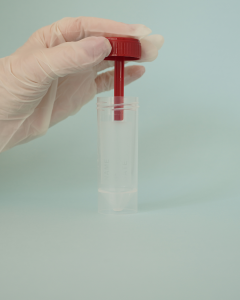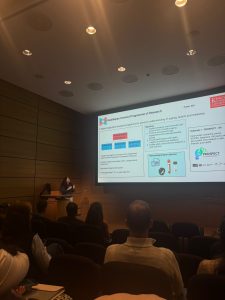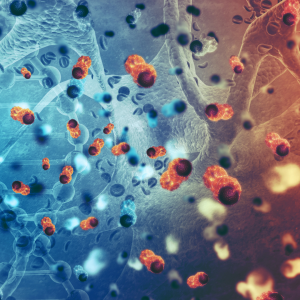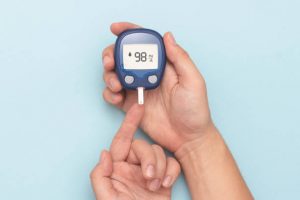New study reveals genetic control of fatty...
Researchers using data from the TwinsUK cohort have uncovered how genetics influences fatty acid levels within adipose (fat) tissue – offering new insights into metabolic,...
08/02/2026
TwinsUK research reveals how tap water habits,...
13th January 2026 – by Aaruthy Suthahar New research using data from TwinsUK has provided valuable insights into how our perceptions, behaviours and even genetics...
13/01/2026
TwinsUK MRI study reaches major milestone with...
18th December 2025 – by Aaruthy Suthahar The TwinsUK MRI study has reached an exciting milestone, with the 1,000th twin now successfully scanned. Recruitment for...
18/12/2025
Key chemical in dark chocolate may slow...
11th December 2025 – By King’s College London A common plant compound found in dark chocolate may help slow biological ageing, according to new research...
11/12/2025
Inside the gut: what our poo could...
4th December 2025 – by King’s College London A new study involving TwinsUK participants has shown that molecules found in stool samples can give a...
04/12/2025
Polyphenol-rich diets linked to better long-term heart...
28th November 2025 – by King’s College London Compounds found in tea, coffee, berries and nuts linked to better long-term heart health. People who regularly...
28/11/2025
Dr Rosiered Brownson-Smith Represents TwinsUK at the...
27th November 2025 – by Dr Rosiered Brownson-Smith A couple of weeks ago, Dr Rosiered Brownson-Smith, Postdoctoral Research Associate on the PROSPECT Project working across...
27/11/2025
TwinsUK data helps uncover hidden mutations that...
8th October 2025 – by Wellcome Sanger Institute New research using data from the TwinsUK cohort has helped reveal how naturally occurring DNA mutations in...
08/10/2025
Hidden evolution in sperm raises disease risk...
8th October 2025 – by Wellcome Sanger Institute Researchers at the Wellcome Sanger Institute and King’s College London reveal how certain DNA changes in sperm...
08/10/2025
Research shows inflammatory link between frailty, social...
5th August 2025 – by King’s College London New research using data from over 2,000 female TwinsUK members has uncovered a possible biological link between...
05/08/2025
First Visits for “It’s Getting Hot in...
By Aaruthy Suthahar We’re excited to share that the It’s Getting Hot in Here study is officially up and running, with our first participant visits...
25/06/2025
Advancing the future of research into metabolic...
31st May 2025 -by Kings College London To honour the memory of British broadcaster, author and science journalist, Dr Michael Mosley, a new clinical research...
31/05/2025
Long-term exposure to ‘forever chemicals’ linked to...
14th May 2025 – by Aaruthy Suthahar Our recent study has shown that long-term exposure to certain man-made chemicals – known as PFAS – may...
14/05/2025
Hungry All the Time? Now We Know...
by Aaruthy Suthahar People who experience big dips in blood sugar levels several hours after eating end up feeling hungrier and consuming hundreds more calories...
21/04/2025
New Study: It’s Getting Hot in Here...
2nd April 2025 – by Aaruthy Suthahar At TwinsUK, we’re excited to announce our upcoming study, It’s Getting Hot in Here, launching this summer! As...
02/04/2025
People from disadvantaged backgrounds have COVID-19 symptoms...
21st March 2025 – By King’s College London People from disadvantaged backgrounds are more likely to experience COVID-19 symptoms for longer, new research suggests. The...
21/03/2025
TwinsUK Launches New Fat Biopsy Study with...
13th February 2025 – by Aaruthy Suthahar We have taken an exciting step forward in our mission to advance health research with the launch of...
13/02/2025
Low levels of mercury exposure impact molecular...
5th February 2025 – by King’s College London A new study reveals the impact of low-level exposure to heavy metals such as mercury on skin...
05/02/2025
Unlocking the secrets of our fat: New...
9th January 2025 – by Aaruthy Suthahar A new study has revealed how our genes influence fat tissue and its role in health. Researchers from TwinsUK and...
09/01/2025
Our Research on X Chromosome Inactivation in...
1st October 2024 – by Aaruthy Suthahar We are excited to share that our study on X chromosome inactivation in systemic lupus erythematosus (SLE), led...
01/10/2024
Groundbreaking Insights into Predictive Metabolites of Heart...
In a groundbreaking collaborative effort encompassing six intercontinental cohorts including TwinsUK, the Consortium of Metabolomics Studies (COMETS) has identified 10 novel molecules measured in serum...
27/09/2024
New Study Reveals Faecal Metabolite Signature Linked...
Researchers from TwinsUK have recently identified eight biochemical compounds measured in stool (faecal metabolites) that are involved in prediabetes and type-2 diabetes risk in a...
27/09/2024
The gut microbiome can predict treatment response...
Professor Frances Williams’ chronic pain research group within TwinsUK at King’s College London has recently published an important article which helps understand the complex and varied response...
27/09/2024
The Link Between Gut Viruses and Cardiometabolic...
A recent review published by researchers at TwinsUK sheds light on the potential role of viruses living in the gut, known as phages, in cardiometabolic diseases (CMDs)....
27/09/2024
Daily fibre supplement improves older adults’ brain...
Researcher’s from TwinsUK conducted a study on twins aged 60 and above which has shed light on the intriguing connection between gut health and cognitive function. As...
27/09/2024
New Study Reveals Epigenetic Markers for Type...
A recent collaborative effort among seven international twin cohorts, including TwinsUK, has yielded new epigenetic (molecular) markers of type 2 diabetes and potentially its complications....
27/09/2024
Researchers challenge focus on rural older adults...
In a report published this week in Clinical Medicine, researchers from the Centre for Ageing Resilience in a Changing Environment (CARICE) show that contrary to that...
27/09/2024
New Insights into How Our Genes Affect...
A recent study has explored how our genes influence the way our skin’s DNA is chemically marked – a process known as DNA methylation. This...
27/09/2024
New Insights into How Our Genes Affect...
Thursday 26th September – by Aaruthy Suthahar A recent study has explored how our genes influence the way our skin’s DNA is chemically marked –...
26/09/2024
Study Sheds Light on the Role of...
31st July 2024 – by Aaruthy Suthahar Researchers at TwinsUK have conducted a study examining the role of the X chromosome in systemic lupus erythematosus (lupus), an...
31/07/2024
Largest Ever Genetic Study of Age of...
17th July 2024 – by Aaruthy Suthahar In a study published in Nature Genetics, researchers conducted the largest-ever investigation into the genetic determinants of pubertal...
17/07/2024
Researchers challenge focus on rural older adults...
Tuesday 4th June – by Aaruthy Suthahar In a report published this week in Clinical Medicine, researchers from the Centre for Ageing Resilience in a...
04/06/2024
Study Reveals ZOE Personalised Diets Yield Health...
9th May 2024 – by Aaruthy Suthahar In a recent study published in the scientific journal Nature Medicine, researchers from ZOE, who are running the...
09/05/2024
New Study Reveals Epigenetic Markers for Type...
23rd April 2024 – by Aaruthy Suthahar A recent collaborative effort among seven international twin cohorts, including TwinsUK, has yielded new epigenetic (molecular) markers of...
23/04/2024
Daily fibre supplement improves older adults’ brain...
29th February 2024 – By Aaruthy Suthahar Researcher’s from TwinsUK conducted a study on twins aged 60 and above which has shed light on the intriguing connection...
29/02/2024
The Link Between Gut Viruses and Cardiometabolic...
21st February 2024 – By TwinsUK A recent review published by researchers at TwinsUK sheds light on the potential role of viruses living in the gut, known...
21/02/2024
The gut microbiome can predict treatment response...
Monday 19th February – by King’s College London Professor Frances Williams’ chronic pain research group within TwinsUK at King’s College London has recently published an...
19/02/2024
In Search of Clues: Circulating Inflammatory Proteins...
3rd January 2024 – by Kings College London Professor Frances Williams’ Chronic Pain and Hearing Loss Research Group, part of our team at TwinsUK, has...
03/01/2024
New Study Reveals Faecal Metabolite Signature Linked...
18th October 2023 – by Aaruthy Suthahar Researchers from TwinsUK have recently identified eight biochemical compounds measured in stool (faecal metabolites) that are involved in...
18/10/2023
Groundbreaking Insights into Predictive Metabolites of Heart...
11th October 2023 – by Aaruthy Suthahar In a groundbreaking collaborative effort encompassing six intercontinental cohorts including TwinsUK, the Consortium of Metabolomics Studies (COMETS) has...
11/10/2023
Study Reveals Higher BMI Puts Adolescents at...
Children between the ages of 12 and 16 with a higher body mass index (BMI) are more susceptible to developing symptoms of depression, according to...
05/09/2023
Three Types of Long-COVID for People Experiencing...
by King’s College London New research shows at least three distinct ‘types’ of long covid for people experiencing symptoms for 12 weeks or more. The...
17/04/2023
Diet High in Protein Linked with Loss...
Researchers from TwinsUK have found that rather than being protective, high protein intake is associated with loss of muscle mass in healthy over-60s. This surprising...
09/03/2023
Can Use of Protein Pump Inhibitors Increase...
Researchers from TwinsUK have found that taking proton pump inhibitors is linked with decreased hip bone density and this effect is partly mediated through plasma...
27/01/2023
What Does Your X Chromosome Say About...
Your X chromosome contains clues as to whether or not you might develop cancer and heart disease, according to latest research from TwinsUK. Chromosomes are...
22/11/2022
Under pressure: The link between belly fat,...
In a world first, a team of researchers led by TwinsUK has found that people with high blood pressure take longer and work harder to...
20/10/2022
Could the Age of Your Brain Predict...
A recent study has found that brain-age could help with early detection of dementia in patients. The team, which included TwinsUK Clinical Director Professor Claire...
30/08/2022
Your B’s and T’s: How They Reflect...
TwinsUK researchers have found that your B cell and T cell responses are linked to COVID-19 infection. The immune system is made up of lots...
30/07/2022
Could there be a link between antibody...
Having three vaccines against COVID-19 offers greater protection and reduces the chance of individuals getting infected, according to research by the National Core Study for...
06/06/2022
Hear here! Hope for future treatments against...
Researchers led by Karolinska Institute, King’s College London and Erasmus University have identified 10 new genes linked with hearing loss and located the part of...
16/05/2022
What are the Most Popular Food &...
by Aaruthy Suthahar New research has found that black tea and semi-skimmed milk are the most consumed items by TwinsUK members. The study, which aimed...
06/04/2022
Could Bacterial Infection Contribute to Lower Back...
Infection of the disc may be a factor in spinal disc degeneration and lower back pain, according to the latest TwinsUK research. Back pain, specifically...
13/02/2022
Do Identical Twins Have Identical Antibody Responses?
In a recent study, TwinsUK researchers found the heritability of anti-viral antibody selection among a cohort of identical twins. The study investigated for the first...
02/02/2022
Could the DASH Diet Help Reduce High...
In a recent study, TwinsUK researchers found that following the DASH diet was linked with reduced blood pressure and that this may be as a...
27/10/2021
Is the Love of Nature in Your...
Identical twins are consistently more similar to each other in their concern for nature, environmental movement activism, and personal conservation behaviour than non-identical twins, suggesting...
22/10/2021
Whats the Link Between Gut Bacteria and...
by Aaruthy Suthahar Women with high blood pressure have lower diversity in their gut bacteria, according to our latest TwinsUK research. This means that addressing...
13/10/2021
How do Hormones Affect Women’s Experience of...
by Aaruthy Suthahar Post-menopausal women have lower levels of the female sex hormone oestrogen and appear to be at higher risk of developing serious complications...
13/10/2021
People with Mental Health Conditions Hit Harder...
People who had higher pre-pandemic levels of depression or anxiety have been more severely affected by disruption to jobs and healthcare during the pandemic, according...
30/09/2021
How Six Researchers Visited 500 Twins in...
by Emily Stevens During the first UK lockdown in March 2020, two nurses and four research practitioners planned their days with military precision. They were...
24/08/2021
Could Your Gut Bacteria Help You Lose...
by Paz Garcia A key molecule produced by gut bacteria is linked to less belly fat, according to the latest TwinsUK research. The team found...
21/07/2021
New Project Announced to Tackle Chronic Pain
Health Data Research UK, the Medical Research Council and Versus Arthritis have announced a new project to advance essential research into chronic pain. The project,...
01/06/2021
Can Supplements Offer Protection Against Covid-19?
by Paz Garcia Taking multivitamins, omega-3, probiotics or vitamin D supplements may lessen the risk of testing positive for COVID-19 for women, according to recent...
23/04/2021
Can the Immune System Recover from the...
by Paz Garcia The immune system of quitters is almost completely restored to a healthy state, according to the latest research from TwinsUK in collaboration...
15/03/2021
50 New Genes for Eye Colour Discovered
The genetics of human eye colour is much more complex than previously thought, according to a new study published today. An international team of researchers...
11/03/2021
TwinsUK to Take Part in Key Long...
TwinsUK will be joining forces with other cohort studies across the UK to study Long COVID through a key project announced last week. Approximately one...
22/02/2021
Appetite Linked to Healthier Gut Bacteria and...
by Paz Garcia Over-60s with a good appetite have more diverse and different communities of microbes in their gut than those with a poor appetite,...
15/02/2021
A good diet can keep us healthy...
by Paz Garcia Your food intake patterns are partly under genetic control, according to the latest research from TwinsUK. First author Olatz Mompeó-Masachs explained: “We...
18/01/2021
30 Key Gut Microbes for your Health...
The latest PREDICT results have uncovered 15 gut microbes associated with lower risks and 15 with greater risks for common conditions such as type 2...
11/01/2021
Professor Frances Williams to Start New Project...
The British Tinnitus Association (BTA) have announced today the first recipient of £125,000 through their 2020/21 large research grant funding programme – and it’s none...
04/12/2020
Addicted to the Sun? It’s in Your...
by Paz Garcia Sun-seeking behaviour is linked to genes involved in addiction, behavioural and personality traits and brain function, according to a study of more...
10/09/2020
Could Fat Tissue Hold the Key as...
Lower levels of a key molecule in fat tissue are linked with health conditions that are risk factors for severe COVID-19, according to new research...
17/08/2020
Researchers Identify Three Nutrients with Major Effects...
by Paz Garcia Going to work on an egg may be a good idea after all, as new research from TwinsUK has found that key...
10/08/2020
There Are Microbes in Your Urine –...
by Paz Garcia You have microbes in your urine and that’s completely normal, according to the latest TwinsUK research. Contrary to popular belief, urine is...
23/07/2020
What Does Tap Water Mean for Our...
by Dr Ruth Bowyer The global improvement to tap water quality worldwide has been a public health success, with access to clean water for drinking,...
17/07/2020
Eat Yourself Slim? Molecules Found in Plants...
by Paz Garcia Eating polyphenols improves your gut health and could lead to a lower risk of obesity, according to the latest research from TwinsUK. ...
06/07/2020
Does Gut Bacteria Play a Role in...
by Paz Garcia A group of gut bacteria is linked with high genetic risk of rheumatoid arthritis, according to new TwinsUK research published today. These...
26/06/2020
Can Diverse Gut Bacteria Help Protect Against...
by Paz Garcia Gut bacteria could be key players when it comes to reducing your risk of type 2 diabetes, according to new research from...
24/06/2020
Landmark Nutritional Study PREDICT Shows Dietary Inflammation...
Researchers led by the Department of Twin Research announced today the first published results from PREDICT, the largest ongoing nutritional study of its kind. The team...
11/06/2020
Use Loss of Taste and Smell as...
King’s College London researchers have called for the immediate use of additional COVID-19 symptoms to detect new cases, reduce infections and save lives. In a...
05/06/2020
COVID-19 Prevalence & Severity Higher in Urban...
COVID-19 is disproportionally more common and more severe in people living in urban areas and regions of higher poverty, a new study from the Department...
29/04/2020
Study of 2,600 TwinsUK Twins Finds COVID-19...
Genes are 50% responsible for the presentation of key symptoms of COVID-19 including fever, fatigue and loss of taste and smell, according to the latest...
27/04/2020
COVID-19: Helping Those at Risk, Together
Today, the COVID Symptom Tracker app, The Academy of Medical Royal Colleges and the UK’s largest health based charities are joining forces in order to...
24/04/2020
Loss of Smell & Taste – A...
Losing your sense of smell and taste may be the best way to tell whether you have COVID-19, according to the latest analysis of the...
01/04/2020
What’s in a Colon? New Project ExHiBITT...
by Paz Garcia Even healthy people have abnormalities in their colon, according to the first results of new study ExHiBITT published today. Researchers found that...
13/02/2020
Could We Diagnose Disease From Saliva?
by Paz Garcia Doctors could in the future diagnose your condition and predict if you will respond well to treatments – from your spit. The...
22/01/2020
Chromosome X Marks the Spot
by Paz Garcia The X chromosome in women shows up differently in different parts of the body, according to new research published today in Nature...
25/11/2019
Gut Bacteria Need Each Other – And...
by Paz Garcia Teamwork is key for the trillions of bacteria that live in our gut and this has a big impact on our metabolism,...
03/10/2019
Hope for Hearing Loss
by Paz Garcia A new study of over 250,000 volunteers has identified 44 new genes linked to age-related hearing loss. A third of people are...
26/09/2019
Could a Glass of Red Wine Improve...
by Paz Garcia Drinking red wine is linked with an increase in gut bacteria diversity, according to the latest research from TwinsUK. White wine had...
28/08/2019
Moles & Melanoma – is the Sun...
by Paz Garcia Genes have a greater influence than previously thought not only on the number of moles you have but also where they are...
14/08/2019
Type 2 diabetes study puts the kidney,...
by Paz Garcia A new study has identified over 60 differences in molecules in 18 organs of type 2 diabetic mice. The research found that...
10/06/2019
Do Different Types of Cells in Fat...
by Paz Garcia Fat is made up of a variety of different types of cells, including ones that store fat and others that form the...
29/05/2019
Why do more women develop lupus than...
by Paz Garcia King’s College London researchers have identified a new gene which may explain why so many more women develop lupus than men. Systemic...
15/05/2019
How Is Bacteria Linked to the Development...
by Paz Garcia The way the immune system interacts with oral and gut bacteria may lead to the development of rheumatoid arthritis, according to researchers...
06/03/2019
Life after Death? Measuring Metabolism Beyond the...
Researchers have provided early evidence for a new method that could help forensic scientists determine time of death more accurately in criminal investigations. The team...
05/03/2019
Body or Brain Behind Backpain?
by Paz Garcia Back pain may be caused through the body or through the brain, according to the results of a new genetics study. The...
22/02/2019
The Genetics of Chronic Backpain
Research led by Professor Frances Williams has been turned into an animation. The animation explains how, in the largest study of its kind, Professor Williams’...
31/01/2019
Researchers identify key genes involved in chronic...
28th September 2018 A team of researchers from around the world, led by TwinsUK’s Professor Frances Williams, has discovered three new genes linked to the...
30/09/2018
New genes implicated in whether skin will...
9th May 2018 Researchers at TwinsUK have identified ten new genetic regions involved in whether a person is likely to tan or burn. These new...
11/05/2018
Gut microbe diversity linked to lower arterial...
10th May 2018 New research from TwinsUK and the University of Nottingham has identified a link between gut microbe diversity and arterial stiffness. Arterial stiffness,...
11/05/2018
More than 100 genes determine hair colour
16th April 2018 Dr Pirro Hysi and a group of researchers from Kings’s College London and Erasmus MC University Medical Center Rotterdam have discovered 124...
18/04/2018
Genes affect fat deposition and Type 2...
9th April 2018 A new paper from Dr Kerrin Small and her team has found that a variant of the KLF14 gene, previously identified in...
10/04/2018
Ideas that change healthcare: Our future growing...
11th October 2017 – by Dr Claire Steves Our healthcare system faces myriad challenges in the next fifty years. We’ve been aware of our growing...
14/10/2017
Dietary omega-3 improves the diversity of gut...
13th October 2017 New research from TwinsUK, published in the Nature journal Scientific Reports last week suggests that including more dietary omega-3 fatty acids improves...
13/10/2017
Gut bacteria play a role in long-term...
16th March 2017 The Department of Twin Research has just published exciting results in the International Journal of Obesity based on the study of over...
18/03/2017
Genetics plays a significant role in immunity
23rd January 2017 Nearly three quarters of immune traits are influenced by genes, new research from the Department of Twin Research, King’s College London reveals. ...
25/01/2017
Acne sufferers’ cells may be protected against...
29th September 2016 Scientists at King’s College London have found that people who have previously suffered from acne are likely to have longer telomeres (the...
30/09/2016
Study finds link between faecal bacteria and...
26th September 2016 Researchers at the Department of Twin Research, King’s College London have found a new link between the diversity of bacteria in human...
28/09/2016











































































































